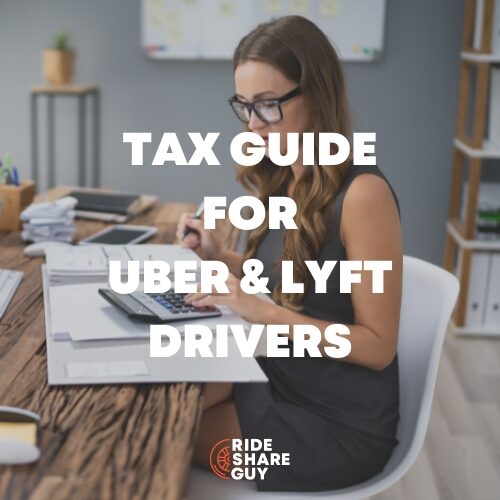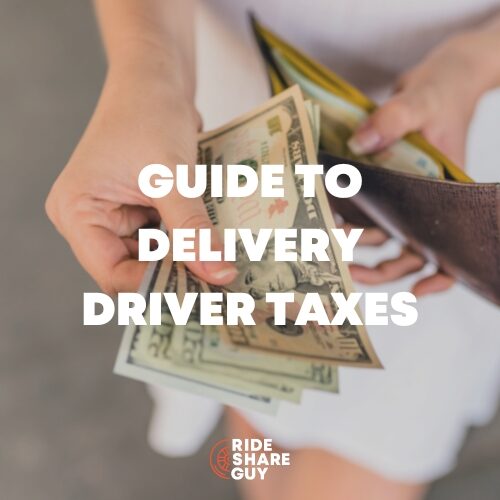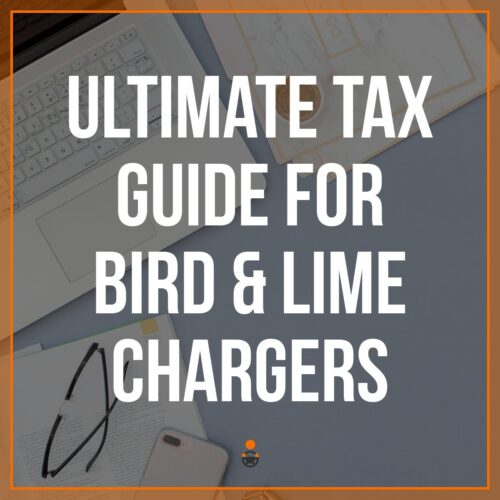You may not have realized it when you first signed up to drive, but as a new rideshare driver, you’re technically a business owner too now. And while running your own business has a lot of benefits, it also means there’s a lot more liability, and one question that comes up frequently has to do with liability protection.
So today, we’re going to take a look at whether or not drivers need to form LLCs and what type of protection it could give them.
If you liked this course, we’ve got another one over at MaximumRidesharingProfits.com. If you’ve found that your income has been decreasing lately with the influx of more and more drivers, we have released all of our top money making strategies in this course. We’ll help you work smarter AND earn more money!
If you’re ready to make your business official, click here to easily set up a business entity (corporation/LLC) online.
Day 1 – Should You Form An LLC For Your New Rideshare Business?
Day 2 – Setting Up Your Rideshare Business Checking Account
Day 3 – Applying For Your First Rideshare Business Credit Card
Day 4 – What’s The Best Way To Track Your Income & Expenses?
Day 5 – What Are The Best Apps To Track Your Mileage?
Day 6 – Everything You Need To Know About Rideshare Taxes
Now that you’re a business owner, there are a lot of important decisions that need to be made. Among the first of those big decisions should be figuring out which type of business entity you want to be classified as. If you do nothing, you’ll be treated as a sole proprietorship, but what exactly does that mean?
Defining A Sole Proprietorship
A sole proprietorship isn’t a legal entity but it simply refers to a person who owns a business and is personally responsible for all of its debts. It is by far the simplest to set up but the one major drawback is that your personal assets will not really be separated from your business’ assets.
Most businesses, especially with rideshare drivers, start out as sole proprietorships because they’re simple, low cost and easy to set up. In fact, many of you are likely sole proprietors and may not even know it yet. So let’s take a look at some of the tax and legal implications of a sole proprietorship.
- With a sole proprietorship, your income and losses will be taxed on your personal tax return but you will now have to file a Schedule C & SE in addition to your 1040.
- Sole proprietorships are a popular business entity due to their simplicity, low cost and ease of setup.
- You can set up a fictitious name for your business (DBA) but at the end of the day your given name (ie Harry Campbell) is really all that matters.
- There may be some local business licenses that you need to apply for but the cost is generally minimal.
The biggest disadvantage of a sole proprietorship is the fact that the owner can be held personally liable for all of the business’ bad debts and judgements from lawsuits.
No Personal Assets
For drivers with a low net worth and/or little to no personal assets, a sole proprietorship could be a good pick. You can still be held personally liable as a sole proprietor but if you have no assets, the chances of you being sued will go down significantly. Since most lawyers work on a contingency fee (often 1/3 of the recovery), they generally will do some digging first to find out if it’s even worth their time to sue in the first place.
If you have a low net worth and not much in seizable assets, it might not make a lot of sense for a lawyer to come after you. But remember, that’s not to say you can’t or won’t get sued, it’s just not as likely. If you do have personal assets that need protecting, you may want to consider an LLC.
LLC
A Limited Liability Company is a hybrid business entity that combines the same pass-through type taxation of a sole proprietorship with the liability protection of a corporation. For entrepreneurs and especially rideshare drivers, LLCs will give you more liability protection than a sole proprietorship.
LLC owners will still report income and losses on their personal income tax return but an LLC effectively separates your personal assets from your business’ assets. The only real downside of an LLC is the potential extra taxes you may have to pay. The tax is pretty reasonable (or even $0) in most states but in California for example, you have to pay $800 per year in LLC taxes.
Most rideshare drivers won’t need to worry about the debt protection aspect of an LLC because you won’t be able to get a loan against the value of your LLC anyways. In order to get a business loan, you would likely have to put up personal assets as collateral so that type of personal debt protection wouldn’t apply.
Where LLCs can protect drivers though is with potential liability claims. If someone sues you during the course of your business activities, your LLCs assets would be held liable but your personal assets would not.
One Thing To Watch Out For With LLCs
There is one big exception to this rule that exists in all states though. Even if you form an LLC, your personal assets could still be at stake if you commit any type of wrong doing or are found negligent. Examples of wrong doing could be:
- Driving your passengers around while drunk
- Knowing about a broken seatbelt, failing to fix it and then getting into an accident where someone is injured because of the seatbelt
- Any other type of wrongdoing where you knowingly failed to act to repair the situation/problem.
A lot of business owners are under the impression that they cannot be sued if they form an LLC. But in fact, forming an LLC will not protect you against personal liability for your own negligence, malpractice, or other type of personal wrongdoing in relation to your business. If both you and your LLC are found liable in a judgement of this nature, your LLC and your personal assets could still be at risk.
If you’re ready to make your business official, click here to easily set up a business entity (corporation/LLC) online.
S-Corporation
For most rideshare drivers, sole proprietorships or LLCs will probably be the best option but there are certain instances where an S corporation could make sense. Both LLCs and S-Corps actually have a lot in common:
- Pass-through taxation
- Limited Liability of a corporation
But the main reason why you’ll hear people opting for S corporations, is because the owner can be treated as an employee and paid a reasonable salary. FICA taxes (social security and medicare totaling around 15%) would only need to be paid on the salary and the rest of the profits would be treated as unearned income. Here’s an example of what I mean:
Let’s say you make $100,000 a year driving for UberBlack. If you pay yourself a reasonable salary of $60k and leave $40k as business profit, you would pay FICA taxes on the $60k but since the $40k is unearned income, you would only owe state and federal taxes. That would save you about $6,000 in FICA taxes ($40,000 x 15%).
Now determining what salary you pay yourself is a huge gray area with the IRS and you’ll definitely need to speak to a CPA about this (and one who specializes in small business/corporation taxation) but you can see the potential for tax savings is pretty huge.
The FICA savings might make an S-Corporation seem like a no brainer but there are definitely some downsides to going with this method:
- A bulk of the self-employment tax savings comes from Social Security tax which will eventually reduce your social security payout.
- You may have to pay unemployment insurance tax on the amount you pay yourself as salary.
- Your retirement account contribution amounts could be reduced.
- It will be more expensive to file taxes as an S-Corporation than as an LLC.
- There may be additional state taxes you have to worry about (this is true for LLC too though).
The moral of the story when it comes to S Corporations is that they could be beneficial but they are extremely complicated and there are lots of trade-offs that you and your CPA/lawyer should consider.
If you are interested in forming an S-Corp I highly recommend that you speak with not only a CPA/lawyer, but a CPA/lawyer who specializes in small business/entity formation/entrepreneurs. There is a lot of misinformation on the internet when it comes to S-corporations because it’s easy to focus on the self-employment tax savings and ignore all of the complicated the trade-offs.
In the meantime, you should start thinking about what type of business entity you would like to form. If you’re an occasional driver or you don’t have many assets to risk, a sole proprietorship might work. But if you’re worried about the liability issues and/or want to give yourself that extra layer of protection, an LLC is probably the better option. And of course if your rideshare driving is starting to bring in significant income, it may be time to talk to a CPA/lawyer about forming an S-Corporation.
Did you like this article? If you’re ready to continue your education and want to start maximizing your profits today, join hundreds of other drivers who have signed up for our first of its kind video training series on Maximum Ridesharing Profits!
In the course, you’ll learn all about getting started with Uber and Lyft, how to maintain a 5 star rating and lots of strategies for finding more surge rides and maximizing your profits as a rideshare driver!
Disclaimer: I’m not a CPA or a lawyer but if you have further questions, I advise that you speak with one.
-Harry @ RSG
PS – Our next article will go over exactly what you need to know to get a business checking account set up!
If you’re ready to make your business official, click here to easily set up a business entity (corporation/LLC) online.
Save



